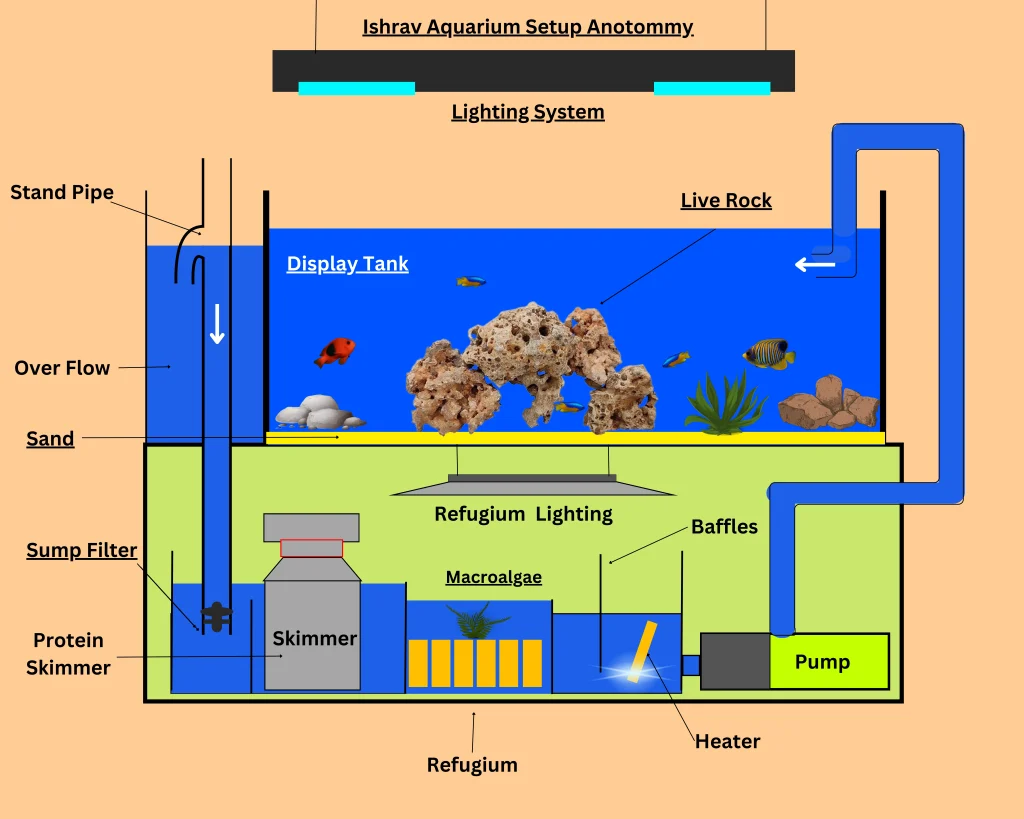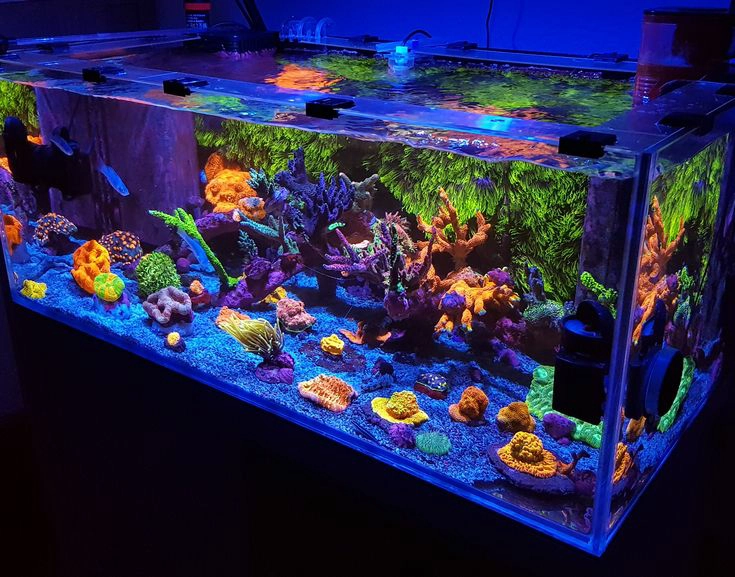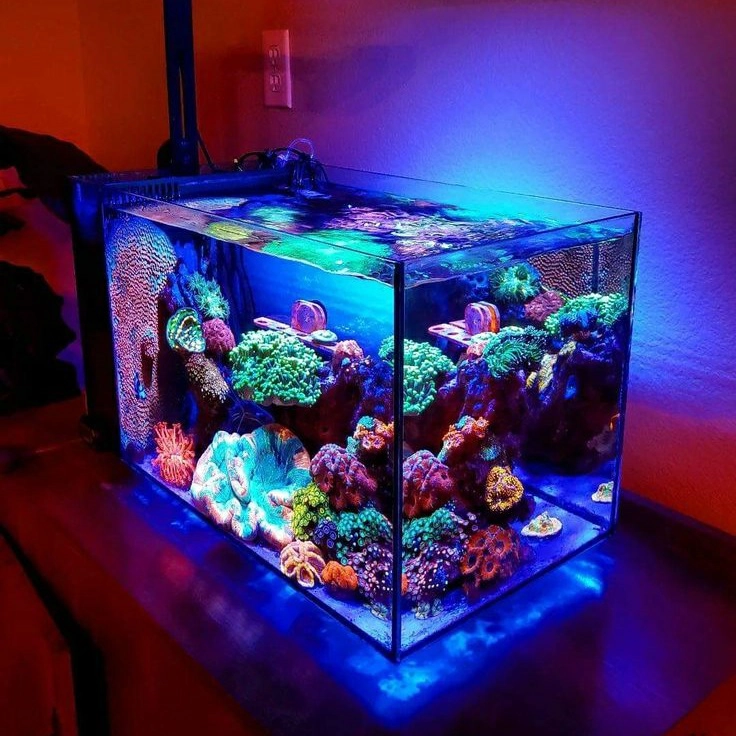Proper Tank Setup
- Tank Size: Start with a larger tank, preferably 30 gallons or more. Larger tanks are more stable and forgiving for beginners.
- Filtration System: Invest in a good filtration system, including a protein skimmer, to keep the water clean and oxygenated.
- Live Rock: Add live rock to provide natural filtration and a habitat for beneficial bacteria.

2. Water Quality Management
- Water Parameters: Maintain stable water parameters. Regularly check salinity (1.023-1.025), pH (8.1-8.4), ammonia (0 ppm), nitrites (0 ppm), and nitrates (<20 ppm).
- Water Changes: Perform 10-20% water changes every 1-2 weeks to remove toxins and replenish trace elements.
- RO/DI Water: Use reverse osmosis/deionized water for mixing saltwater to avoid introducing impurities.

4. Feeding
- Balanced Diet: Feed your fish and invertebrates a varied diet, including high-quality pellets, frozen foods, and occasional live foods.
- Avoid Overfeeding: Feed small amounts once or twice a day. Overfeeding can lead to poor water quality and algae growth.

6. Quarantine New Additions
- Quarantine Tank: Use a quarantine tank for new fish and corals to prevent the introduction of diseases or pests to your main tank.
- Observation Period: Keep new additions in quarantine for 2-4 weeks before transferring them to the main tank.
7. Regular Maintenance
- Cleaning: Clean the glass, remove debris, and siphon the substrate during water changes.
- Equipment Check: Regularly inspect and clean your filtration and lighting equipment to ensure they are functioning properly.
8. Monitoring and Patience
- Monitor Daily: Check your tank daily for signs of stress, illness, or equipment failure.
- Patience is Key: Marine tanks take time to establish. Avoid rushing the process, especially when adding new livestock.
All Informations Are Given by Ishrav International
Author introduction
U N Goswami is a marine fish and reef expert with over 20 years of experience. His specialization includes the study and conservation of coral reefs and marine fish species. With a deep understanding of reef ecosystems and fish behavior, Goswami has played a crucial role in advancing knowledge and promoting sustainable management practices to protect marine biodiversity.

My goal is to promote sustainable management practices that safeguard marine biodiversity for future generations
- U N Goswami Tweet